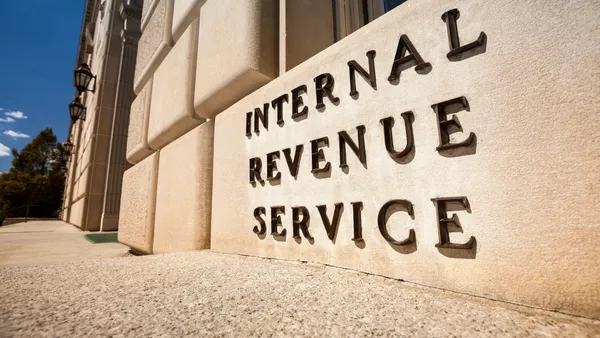Companies are taking out or replacing existing debt with loans in which interest rates go up or down depending on how well they meet environmental, social and governance (ESG) benchmarks, The Wall Street Journal reported.
The market for the loans is growing substantially, from essentially zero in 2017 to almost $84 billion this year, according to Dealogic data the Journal reported.
The loans aren’t tied to ESG-related projects per se. Unlike transition bonds, which companies issue to finance green projects, these are term or revolving loans for capital or operating expenditures that companies take out in the ordinary course of business.
Even though they’re not tied to green projects, they let companies put their money where their mouth is when it comes to matching their ESG rhetoric with their performance.
If they meet sustainability benchmarks set in the loan agreement, the interest rate goes down; if they don’t, it goes up. The interest-rate difference varies based on the loan agreement, but it tends to be relatively small, maybe a fraction of a percentage point, the Journal reported.
Concrete evidence
The performance metric gives companies hard data to show whether or not they’re taking their goals seriously, a source of concern for the Securities and Exchange Commission, which is thinking about mandating ESG reporting, and activists.

Critics have called out the practice of greenwashing, in which companies say the right things about sustainability and other values but don’t back up their goals with hard numbers.
“Investors need clarity over how companies will turn goals to actions in the next few years,” Generation Investment Management, a sustainability focused investment firm, said in a report. “The time for celebrating vague, distant goals on net zero or ‘nature positive’ has long passed.”
Goal strength
If done right, the loans could be a way for companies to counteract the perception of inaction, but the loans also raise their own questions. Although companies rely on third-party firms to validate whether or not they meet their goals, it’s not clear if the goals themselves are actual goals or simply numbers companies would have hit anyway in the regular course of business.
“What we run the risk of is, you set targets that you know are foolproof for you,” Krista Tukiainen, head of research for the nonprofit Climate Bonds Initiative, told the Journal.
Cable manufacturer Southwire Company took out a $1-billion asset-backed loan from a consortium of banks including Wells Fargo.
The company didn’t disclose pricing details but said the interest rate is tied to a five-year goal to eliminate two types of emissions that are a by-product of its operations.
By making the loan, Wells Fargo is hoping to meet its own sustainability goals, which entail lending $500 billion over the next 10 years to borrowers who are under the gun to meet ESG-related performance agreements if they don’t want to pay a higher rate.
The Interest rate paid by Aligned Data Centers, which has a $1.25-billion credit facility outstanding, goes up or down depending on how it fares in its effort to use more renewable energy in its data centers, among other things.
Not only does the loan make financial sense, the company’s CFO, Anubhav Raj, told the Journal, but it’s something its customers appear to want.
“We think that’s attractive to them, and helps us win more business,” he said.











